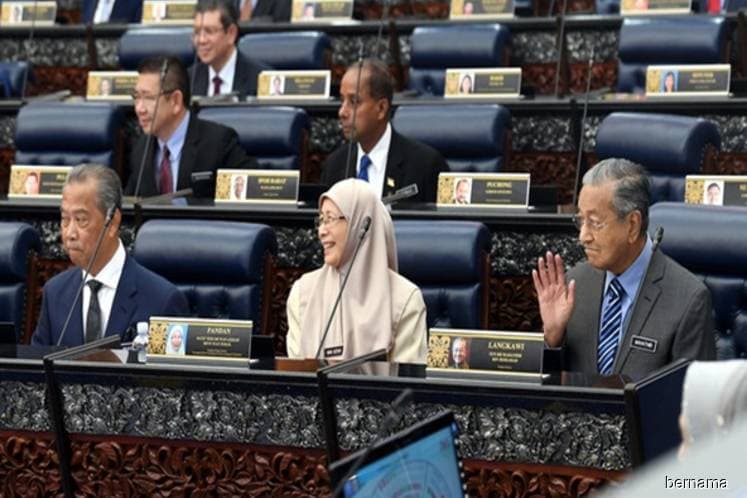
KUALA LUMPUR (Oct 18): The new government’s fiscal and governance reforms starting mid-2018 will have an impact on economic growth, but they are expected to be short-lived and manageable.
According to the Mid-Term Review of the 11th Malaysia Plan (2016-2020) released today, the short-term growth trade-off is necessary to further strengthen the economy in ensuring more meaningful economic growth for the rakyat.
In the remaining plan period, the original gross domestic product (GDP) growth target is revised to an average annual rate of between 4.5% and 5.5%, supported by sustained domestic demand, especially from private sector expenditure.
Based on the growth target, gross national income (GNI) per capita is expected to reach RM47,720 (US$11,700) in 2020, in line with moderate inflation. This is about 6% below the estimated minimum income threshold of a high-income nation.
Private consumption will continue to be a major source of growth and is expected to expand at an annual average rate of 7%, with the share to GDP reaching 56.9% in 2020, on the expected favourable labour market conditions and continued growth of income levels.
Meanwhile, public consumption is expected to grow moderately by 0.3% per year, with emphasis on optimising public expenditure without affecting the quality of public service delivery.
The government will further strengthen the ecosystem for private investment to continue as the growth catalyst, with a targeted growth of 5.7% per year and the contribution to GDP increase from 12.3% in 2010 to 17.8% in 2020.
Public investment is projected to contract at 0.8% per year, due to revision of major infrastructure projects such as the East Coast Rail Link and the Kuala Lumpur-Singapore High Speed Rail.
However, the government remains committed to meet the socioeconomic needs of the rakyat by undertaking high-impact projects, the report revealed.